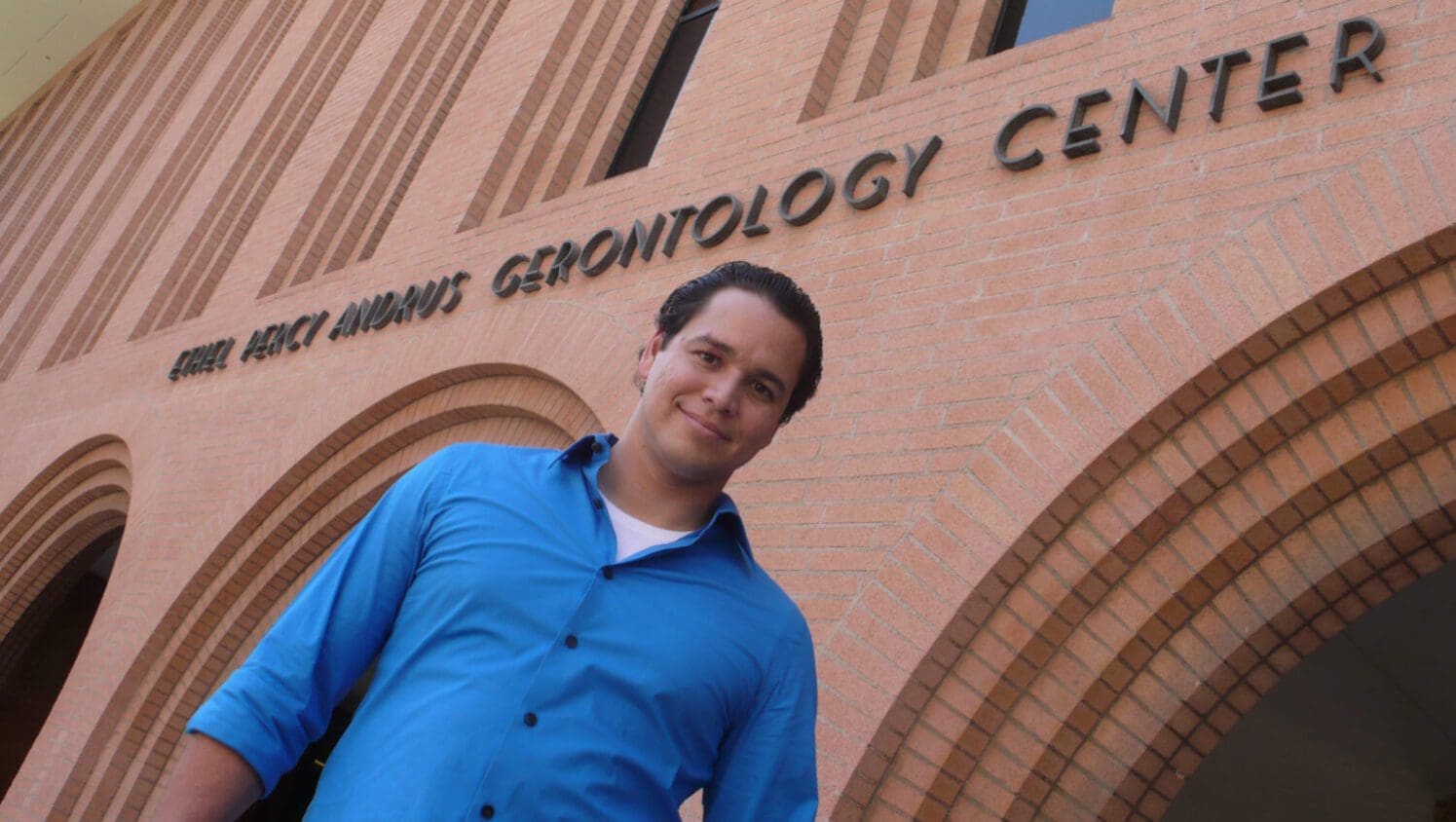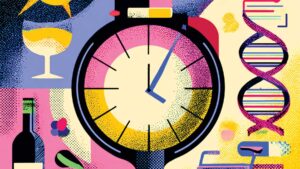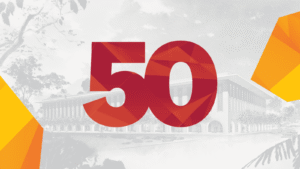USC Leonard Davis School alum Lauren Iwata won a prestigious honor: being named 2013 Nisei Week Queen. According to its website, Nisei Week, first held in 1934, is a nine-day event that celebrates Japanese and Japanese American heritage and traditions while uniting Southern California’s diverse communities through arts and cultural education. (photo courtesy of Toyo MIYATAKE Studios)
USC Leonard Davis: How does it feel to be named 2013 Nisei Week Queen?
LAUREN IWATA: I am so honored to be crowned the 2013 Nisei Week Queen because of the tradition that Nisei Week stands for in our community. As a young girl, I would always see the young women in the Rafu Shimpo (Japanese newspaper) and comment on how beautiful they were, and how they seemed so accomplished after reading their bios. Participating in Nisei Week as a Queen Candidate is something I never imagined myself doing since I was always very shy, and did not have much confidence. The thought of speaking on stage, and becoming an ambassador of the Japanese American community was not only intimidating, but the idea of it was actually frightening to me. However, upon graduating from California State University, Long Beach with my bachelor’s degree, and entering the USC Leonard Davis School of Gerontology, I found my passion in what I wanted to study and really matured as a young woman. The graduate program at the Davis School provided me with experiences in the classroom and out in the field to help me become happy and comfortable with who I am. Being selected as the 2013 Nisei Week Queen has given me a once-in-a-lifetime opportunity to represent the Japanese American community throughout Southern California and I am awestruck to join the exclusive group of young women whom I have always looked up to.
What makes you proud of being part of Nisei Week?
Being part of Nisei Week is truly an amazing experience. I have met many individuals representing various organizations and businesses just within this past week who have shown so much support toward the 2013 Nisei Week Court and Nisei Week Foundation. It is exciting to connect with all these people and learn about their contributions to the Japanese American community. Nisei Week aims to bring the older and younger generations together by mixing old traditions with new activities. As someone who studied gerontology, I am passionate about bridging the generational gap and showing people how much we can learn from one another. I am proud to be part of the younger generation to share new ideas with older adults. However, I understand the importance of preserving tradition and learning more about my culture from the older generation. Nisei Week serves as an excellent example in showing the significance of passing along our heritage to the younger generations and that is why I am proud to now be a part of this event.
How do you hope to incorporate your gerontological interests into your reign?
I am currently interning with Keiro Senior HealthCare in Boyle Heights. Keiro is a nonprofit healthcare organization serving the Japanese American population with four healthcare facilities throughout the greater Los Angeles area while also promoting healthy lifestyles within the community. My internship was within The Institute for Healthy Aging department, which acts as a community resource and performs health education to churches, community centers, and many other various organizations. Working with Keiro has utilized my education from the Davis School of Gerontology, while Nisei Week has now connected me further to my Japanese American heritage. My future gerontology goals are to work within a long-term care facility ensuring proper care among residents and helping family members understand what their loved ones are going through. I also hope to be continuously active in health education to aid individuals in remaining healthy and independent within the community. By becoming an ambassador to the Japanese-American community, I would love to incorporate my gerontological interests by becoming a community resource that people trust and make a difference in the lives of older adults.
What would you like the general public to know about Nisei Week?
2013 marked the 73rd annual Nisei Week Japanese Festival. The Nisei Week Foundation mission is to promote Japanese and Japanese American heritage and traditions while bringing together the diverse communities of Southern California through arts and cultural education. Every year, the Foundation produces the nine-day Nisei Week Japanese Festival and it is one of the longest running ethnic festivals in the United States. My reign as Nisei Week Queen will last one year, but I can already tell you that my life has changed just within this past week. Many individuals within our community have been generously volunteering their time in teaching cultural classes and skills to get the 2013 Court ready, not only for Nisei Week, but also for life. Receiving training on public speaking, teamwork, and communication and learning about the community and its rich history are valuable lessons to each of us as young women on the Nisei Week Court. Later this year and next year, we will travel to Japan, Hawaii, Washington and Northern California as representatives of the Southern California Japanese American community. The whole experience is such an honor, and I hope those reading this article will join us in future Nisei Week festivals to be a part of this long-time tradition!
Anything else you’d like to say?
I graduated in May 2013 from the USC Leonard Davis School of Gerontology, and I have to say I’m going to miss it! I cannot describe how great my experience was from the vast knowledge I took away from the classroom, the valuable skills I obtained from internship placements, and the amazing people I met through the graduate program. I received an immense amount of support from my professors, and I am very thankful for their hard work in shaping their students into young professionals. I also appreciate all my classmates who I know are doing great things within the gerontology field now. While I was training for Nisei Week, I received so much support from friends who I have met through the program. My fellow gerontology classmate, Michelle Pastrano, even attended Nisei Week Coronation to cheer me on! I am honored to be part of the USC family, and will always be connected to the USC Leonard Davis School throughout my life.
Click here to read Lauren’s blog entry for GenkiWoman, “My Genki Journey Through Nisei Week.”
http://genkiwoman.org/2013/08/22/my-genki-journey-through-nisei-week

 Changhan David Lee, a research assistant professor at the USC Leonard Davis School of Gerontology, won the Ellison Medical Foundation’s New Scholar in Aging Award.
Changhan David Lee, a research assistant professor at the USC Leonard Davis School of Gerontology, won the Ellison Medical Foundation’s New Scholar in Aging Award.



 As befitting its status as the world’s oldest and largest school of gerontology, the USC Leonard Davis School was well represented at the 20th International Association of Gerontology and Geriatrics (IAGG) World Congress, held from June 23-28 in Seoul, South Korea.
As befitting its status as the world’s oldest and largest school of gerontology, the USC Leonard Davis School was well represented at the 20th International Association of Gerontology and Geriatrics (IAGG) World Congress, held from June 23-28 in Seoul, South Korea. Once again, the USC Leonard Davis School graduated its largest class. This year’s graduates shared a special honor: earning a heartfelt send-off from Pinchas Cohen in his first commencement as dean.
Once again, the USC Leonard Davis School graduated its largest class. This year’s graduates shared a special honor: earning a heartfelt send-off from Pinchas Cohen in his first commencement as dean. Imagine: a pharmaceutical prevention, treatment or even cure for Alzheimer’s.
Imagine: a pharmaceutical prevention, treatment or even cure for Alzheimer’s.




